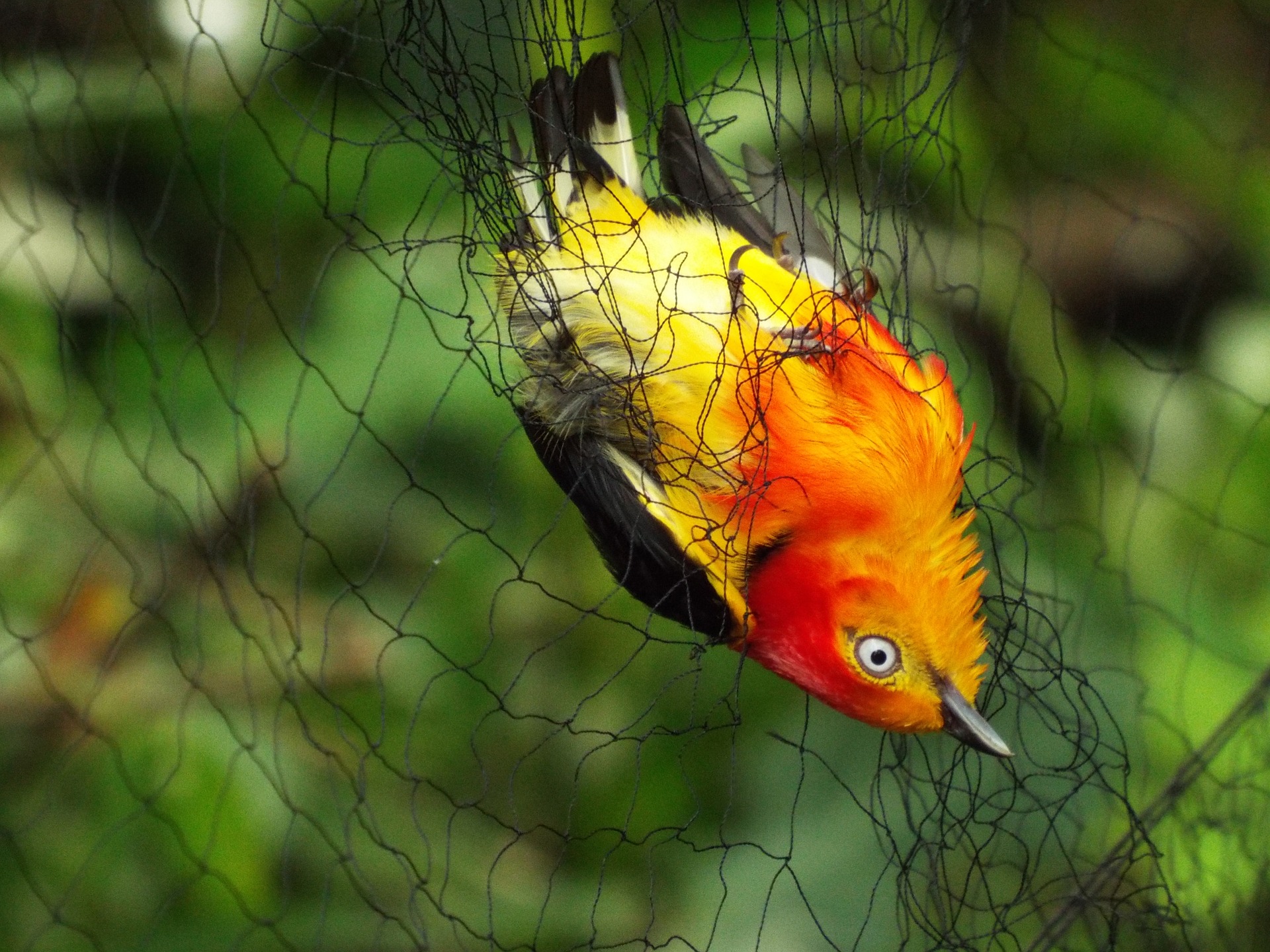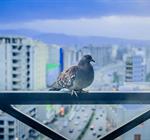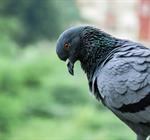
27 Nov 2020 | Apex Environmental Services (UK) Ltd
When birds become a bigger issue in your environment than a simple sounding of a klaxon or arm swishing can resolve, you need an efficient and effective solution from an industry specialist. We have the techniques, qualifications and experience to assess, address and assure you of a lasting answer to your bird control worries.
The birds won’t oblige you by flying off one night as if by magic. Ignoring the issue of an escalation in the local meddlesome bird population will produce no satisfactory results. Taking action to reclaim your property does. Moreover, leaving birds and their detritus to rule the roost (sorry, bad pun) has implications for human health including possible cases of Histoplasmosis, Campylobacteriosis, Psittacosis, Ornithosis, Salmonella and Gastroenteritis, some of these diseases have proven fatal. A birds nest blocking a ventilation system increases the risks of carbon monoxide poisoning.
Below are five primary ways in which we eradicate your bird infestation. Each one is in compliance with the legislation and is humane. The birds are moved from their location without injury. We’re not motivated to eliminate the birds from existence, just send them to more suitable locations. You can decide, with our assistance, whether the approach taken is a temporary measure or will suit you better as a permanent solution.
- Hawking
Hawks that have been trained not to attack the problematic birds are set on flight paths over a series of days or weeks so that their presence alone becomes sufficient to discourage the birds from remaining in a location in which a threat, a bird of prey, is. They don’t have the advantage of knowing that the hawk won’t attack and their natural instinct is to fly away to survive. This achieved, the hawk will continue to fly over the location for a number of flights to ensure that none of the birds, or a new group, roost at the site again. - Bird Scaring
This approach offers a humane but high risk based suggestion to birds. This solution works well with the hawking programme. Bioacoustics replicates the sounds of distressed birds and plays them into the appropriate space. The congregating birds will be suitably unnerved that they will not want to stay and face the danger that the bioacoustics suggest that another bird is facing. Pyrotechnics can also be used, blanks fired or kites flown when the hawks aren’t in flight to maintain the level of suspicion that the area is not safe for them to roost or gather in. - Anti bird spike systems.
The sophisticated spikes aren’t sharp enough to impale or harm the birds accessing their usual spot but they act as deterrents by prodding the birds back with their blunt ends. The bird loses patience as it works out that it cannot reach its destination and, looking for an easier answer, flies off. If their bird friends attempt to fly into the spikes they’ll be repeatedly repelled and so the infestation is diminished. The spike system installations are ideal for low to medium volume problems. They require no maintenance. The diagonal stainless steel spikes are joined to self adhesive plastic bases which overhang ledges. They are an enduring option. - Post and wire systems.
These offer a discreet installation on to flat surfaces so that birds cannot settle or nest on them. The no maintenance required system uses wires to act as barriers to the birds, as you may have already guessed, these anti corrosion wires are attached to posts. From ground level you’ll struggle to see the wires. - Anti bird netting systems.
We can address many bird problems with an anti bird netting system. The netting is manufactured from polyethylene and it’s a discreet, strong, weather and chemical resistant material. Designed to perform to the highest industry specifications it is available in 19mm, 50mm and 75mm gauges. The gauge we use is determined by the species of bird that you are experiencing issues with. Whatever the size or shape of your space, anti bird netting is a viable option. Larger spaces including bridges and footpaths can either be fitted with netting or a robust mesh solution which is available in a discreet colour range to repel all size birds and volumes of infestation.
How well do you know your beady eyed enemy?
- The RSPB has counted five hundred and seventy four species of birds in the U.K.
- Several bird species gravitate to London and the South East despite the massive population, traffic and concentration of buildings which you would imagine birds would prefer to live away from. But, there is always food for them in built up areas which is a key attraction.
- 370 different species of birds have been spotted in London with starlings, wood pigeons and house sparrows at the top of the list.
- In September 2020 the RSPB estimated that there were 8600 breeding pairs of wild parakeets in the capital.
- Robins are the nation’s favourite wild bird.
- A peregrine falcon is the fastest bird, reaching speeds of around 200mph.
- Chickens with red earlobes produce brown eggs, white eggs come from white ear lobed species.
- The only poisonous bird in the world lives nowhere near us, thankfully. The Hooded Pitohui makes its home on the South Pacific island of Papua New Guinea. The skin and feathers can kill humans.
- A woodpecker can peck at a staggering 20 pecks per second.
- Whilst most African Grey Parrots learn approximately fifty words, one reached a vocabulary of around 800 words.
- Smaller birds excrete up to 50 times per day and larger species.tend to go approximately 20 times a day. That’s a lot of unwelcome bird poop and no nappies!
- Bird waste, known as guano, is acidic and it can damage properties even in relatively low volumes. It’s also flammable, containing nitrate, sulphur, phosphorus and ammonium.
Removing an excess of birds is far less costly than trying to co-exist with them and their waste so ask us for our professional guidance, installations and hawking programmes. We’ll help you stay safe and protected.
Talk to Apex Bird Control Today
Protecting your buildings from birds requires a bespoke solution. The architecture of the building and your location will have an impact on which species of birds are most likely to pose a risk to your business. By talking to our team, we can help you to identify an effective bird control system.
To find out more today, contact Apex Bird Control now on 01256 578025 or email us at info@apexbirdcontrol.uk


